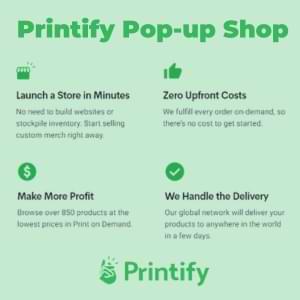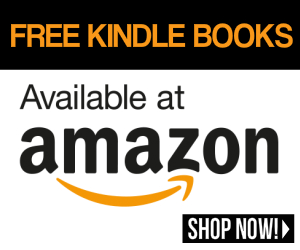Low Caffeine Coffee and Other Alternatives
As a rule of thumb, I try to drink coffee in moderation. But sometimes that’s easier said than done — especially if you’re the type of person who lives and breathes your morning cup o’ joe. That’s why I’ve rounded up some other options for getting that caffeine boost without drinking too much coffee (or not having any at all).
The most important thing to remember when purchasing a cup of coffee is that there are no set standards for caffeine content. The only way you can know for sure how much caffeine is in your brew is by checking the label on the package or asking your barista at a cafe.
U.S. Coffee Consumption
According to recent statistics from the Food and Beverage Insider, coffee consumption in the U.S. is at a record high. 66% of Americans now drink coffee every day, which is more than any other beverage including tap water. Statista reports that on average, Americans consume 1.87 cups of coffee per day. Additionally, 49% of people drink 3 to 5 cups of coffee a day, and 1 in 2 Americans most prefer medium-roast coffee. In total, Americans drink 400 million cups of coffee per day.
Decaffeinated Coffee
Decaffeinated coffee is an increasingly popular beverage choice for those looking for a caffeine-free coffee experience. While there are a few different methods used to remove caffeine from coffee, the most common types of decaf coffee are water-processed, Swiss water-processed, and carbon dioxide processing.
- Water-processed coffee is the oldest method of decaffeinating coffee. In this process, coffee beans are soaked in hot water, which leaches out the caffeine, and then they are steamed and dried. This method is efficient and effective but has been criticized for possibly removing other desirable compounds found in coffee.
- Swiss water processed coffee is decaffeinated using hot water, the same as the water process method. However, the Swiss water process does not use any chemicals in the decaffeination process. This method is widely considered to be a more natural alternative for removing caffeine from coffee beans.
- Carbon dioxide processed coffee is a newer method of decaffeination. In this method, the beans are soaked in a solution of pressurized carbon dioxide, which removes the caffeine from them. This method is considered to be the most efficient and effective method of decaffeination, and it does not affect the flavor of the beans.
Another type of decaffeinated coffee is direct solvent processed coffee. In this method, the caffeine is removed from the beans using a chemical solvent, such as methylene chloride or ethyl acetate. This method is often used to decaffeinate lower quality beans, and it is known to affect the flavor of the finished product.
No-Coffee Highs
- Herbal teas, tisanes and even coconut water can be a good alternative to coffee.
- Yerba mate is another option that’s high in antioxidants and offers more sustained energy than coffee.
- Matcha is a Japanese green tea powder that has been used for centuries in traditional ceremonies, but it’s also great for your health because it contains high levels of catechins which have been shown to have anti-inflammatory benefits and help improve focus and concentration.
There are a number of ways to enjoy matcha. You can use it as a tea or in smoothies, lattes, or even desserts. It’s particularly tasty when mixed with fruit juice for an antioxidant boost that will help give you energy without the jitters associated with coffee.
Herbal Teas
Herbal teas are made from herbs, flowers and other plants. They can be good for digestion and may help you feel more relaxed. Herbal teas come in many different flavors, but they don’t contain caffeine like coffee or tea does.
Some herbal teas have been shown to have health benefits including:
- Red Clover (Trifolium pratense) – Red clover has been found to improve blood cholesterol levels when taken daily over a period of 4 weeks.
- Goldenseal (Hydrastis canadensis) – Research suggests goldenseal may help treat bacterial infections caused by Staphylococcus aureus bacteria as well as certain types of fungal infections including candidiasis (thrush).
- Peppermint (Mentha × piperita) – Peppermint has been shown to effectively treat indigestion, nausea and vomiting caused by the consumption of spoiled food.
- Chamomile (Matricaria recutita) – Research suggests that chamomile may help reduce inflammation in people with asthma when taken daily over a period of 4 weeks.
Other Tisanes
Tisanes are herbal teas, which means they’re made from dried plants rather than leaves and buds. They tend to have less caffeine than coffee and can be a good option if you’re looking for something other than water or green tea to drink in the morning.
- Tisanes are good for digestion: If you have stomach issues like bloating or gas, tisanes could help you feel better because they’re high in minerals like magnesium and potassium (which also helps keep your blood pressure down).
- Tisanes can support skin health: Some herbs like chamomile have anti-inflammatory properties that can help soothe irritated skin while others may reduce breakouts by regulating oil production in your pores.
- Tisane teabags are great for making yourself an easy bedtime routine: You can brew one right before bedtime so all you have left is adding honey!
Other Ways to Get a Caffeine Boost Without Coffee
If you’re looking for a caffeine boost without coffee, there are plenty of other options. Herbal teas and energy drinks are popular choices that can provide a similar effect to coffee without the jitters or crash. Energy shots and gummies are also good options if you don’t want to sit down with a mug of hot tea; they come in convenient packages and often have added nutrients such as B vitamins or taurine (an amino acid).
If you’re not keen on herbal teas but still want something warm, try an energy chew! These chewy treats contain caffeine powder as well as other ingredients like taurine–so they’ll give you more than just energy alone!
The most important thing is to find a caffeinated drink that works best for you and your lifestyle.
U.S. coffee consumption is at an all-time high with 66% of Americans now drinking coffee every day. We're also looking for low caffeine options! Share on X
Note: Some links on this page are affiliate links meaning that if you click on my link and make a purchase, I will receive a small commission. It does not however affect the price you pay. Plus, it’s a great way to support me and the content I’m providing.







